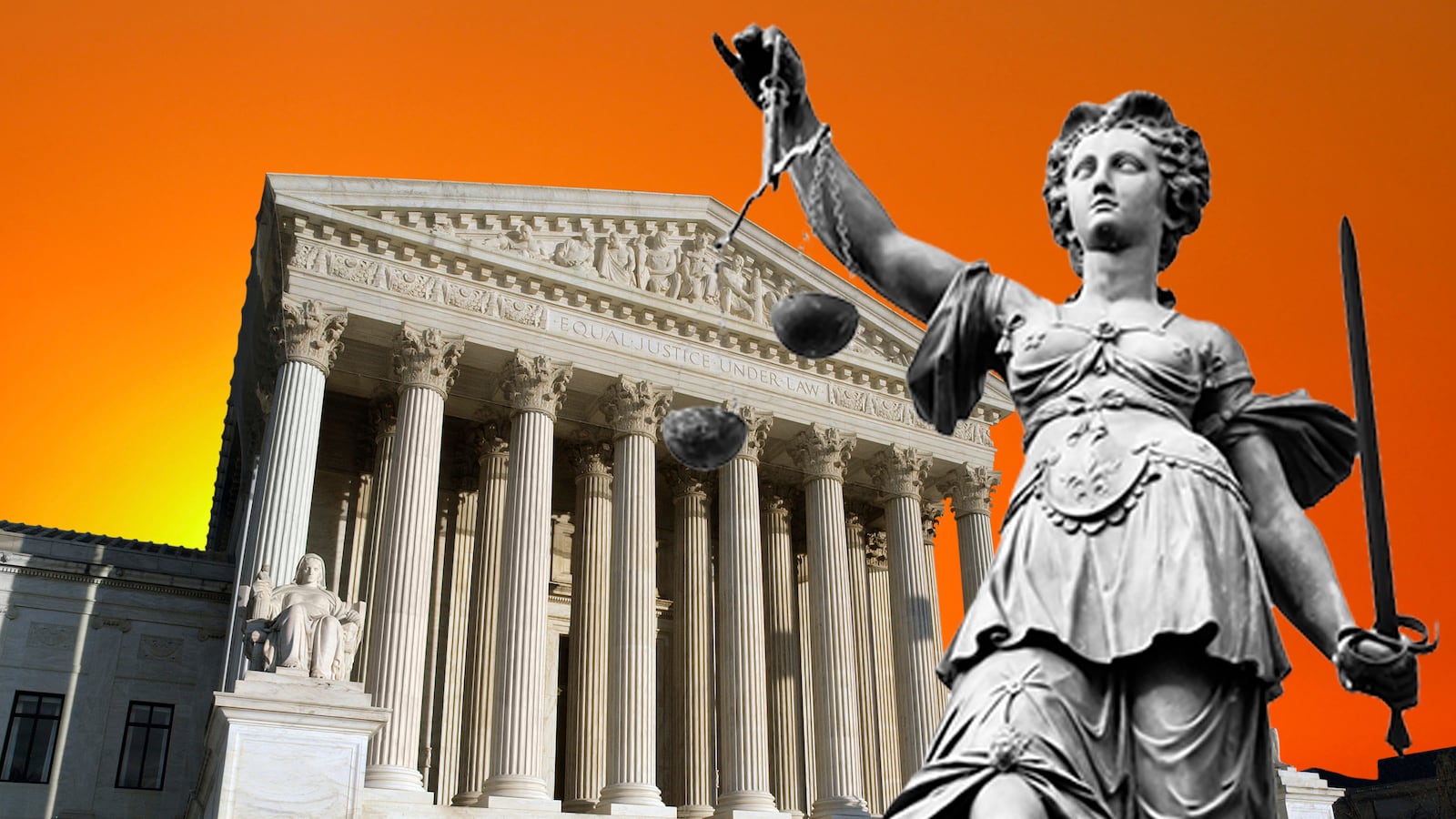Tuesday, the Supreme Court heard what could be one of the most important political cases of the year, a case that—along with an Amtrak case being heard in December—could redefine the degree to which companies can directly exercise political power. These cases—both of which involve anti-competitive behavior— should force the Court to describe the appropriate relationship between private and public power. That, of course, is the question we are all trying to figure out, in a post-Citizens United world.
These cases are part of the monopoly moment that we are in right now. By that I don’t mean just monopolies as defined by the current antitrust law, but monopolies understood more broadly, when through government action or inaction, private companies acquire excessive power.
Look at what happened this week alone. First, Comcast shareholders voted in favor of the Comcast-Time Warner merger, while a Kentucky city threatened to block it locally. Second, the Nobel Prize for economics went to Jean Tirole, who studies how to regulate politically powerful companies. Third, Franklin Foer wrote a cover story for The New Republic on why Amazon needs to be broken up. And finally, in a candid interview that caught fire on the internet, Elizabeth Warren described the monopoly moment this way to Thomas Frank of Salon: “You know, the other side has its advantage, and boy have they played it out for 30 years now—concentrated money and concentrated power. And you can do a lot with concentrated money and concentrated power.”
With the increasing role of big companies—in politics as actors, as spenders, as speakers, as employers, and as media owners—corporate law is now at the core of modern political practice.
So, into the breach of this monopoly moment comes this week’s dentists’ case and December’s trains case. Let me explain each, briefly.
In the dentists’ case, practicing North Carolina dentists, elected by other dentists, dominated a regulatory board that sent cease and desist orders to non-dentists who offered teeth-whitening services. The question is whether antitrust law does or doesn’t apply because the dentists were acting as a state body. Crudely put, when a state acts directly, it can’t be sued for anti-competitive behavior; when a private party does, it can. But for entities in between, the legal question is whether antitrust immunity extends to private actors, like the dentists’ regulatory board, who are both market participants and who exercise state governmental power.
The Court could go in three different directions here. First, it could decide that regulatory bodies made up of market actors receive antitrust immunity only if they are actively supervised. That decision would shake up hundreds of state boards and associations. According to the dentists, such a ruling would mean that “no one will serve on these boards.” Or the Court could decide that deference to state practice is the only workable practice, throwing its hands up in the face of corporate power inside government. Finally, it could craft something in between.
In the Amtrak case to be argued in December, the question is whether agencies and government can delegate governmental authority to a private entity like Amtrak. The Passenger Rail Investment and Improvement Act of 2008 requires the Federal Railroad Administration (FRA) and Amtrak to “jointly… develop” metrics and standards that are used to judge Amtrak’s performance. The legal question is whether this constitutes an unconstitutional delegation of legislative power to a private entity. In that case, there is more oversight, but still the central role and entanglement of an identified actor poses difficult democratic questions.
The two case are quite different on their face. One involves an entirely unified corporation (Amtrak) that is arguably quasi-public; other involves a board which is made up of a huge number of private practitioners. And, to be clear, they aren’t easy cases—they are interesting in part because they are hard. They force the Court to craft rules that enable public accountability and discourage internal corporate takeover, without evicting all private actors and their expertise from contributing to the process.
But the big question that both of these cases pose is an extension of that raised in Citizens United: what is the appropriate political role of companies in a democracy?
There’s genuine uncertainty about which way these cases will go. You could see that uncertainty in the post-oral argument reporting. Unlike in other areas, the lines aren’t clear, and there are few Louis Brandeis-type populists on the court, who see antitrust and decentralized private power as the source of a thriving economy and democracy.
Depending on how the cases come out, the future role of corporations as our direct governors could be at stake. In Citizens United the Court gave its blessing to corporations having a significant political role in elections. In Hobby Lobby, the Court gave some corporations religious freedom rights. If the Court does not constrain corporate power in these cases, corporations won’t just be treated as individuals with rights—they will be our governors.
A corporate-friendly set of rulings would lead to an unholy cycle where powerful corporations could spend millions to elect candidates who were in favor of delegating significant powers to private parties. In some instances, the new model would cut out the lobbying industry: Why lobby, or try to “capture” a regulatory agency through revolving doors, when you can just be the regulatory agency? First corporations speak, then they get religion, then they make our laws. In this future, Comcast lobbies and creates SuperPACs for the sake of Comcast being able to set rules that govern competition in Comcast’s industry.
However, unlike in the campaign finance cases, I am hopeful that the Court will resist this dystopic future. My optimism springs from the contradictory statements of the conservative justices of the court. The justices trained in law and economics concerned about Chicago-School rent-seeking (where private actors seek special treatment from government) may see these cases as a chance to enforce their own anti-corruption principle. They resist corruption in campaign finance law, but they see it everywhere in regulatory agencies.
Most likely the cases will end up using complex tests that still enable private, direct governance, but you never know with the Roberts Court. Roberts has shown a tendency in other political law cases to make broad pronouncements, upsetting precedent.
At oral argument, the dentists’ lawyer was unabashed. Government can give private parties governmental power and immunity as long as the private parties have “sworn an oath to uphold the law.” Oaths were mentioned nearly 20 times. The oath, according to the King James Bible, requires one to “do according to all that proceeds out of his mouth.” Of course, proceeds of the mouth is the whole question. That, and the proceeds of the mouths of the justices.





